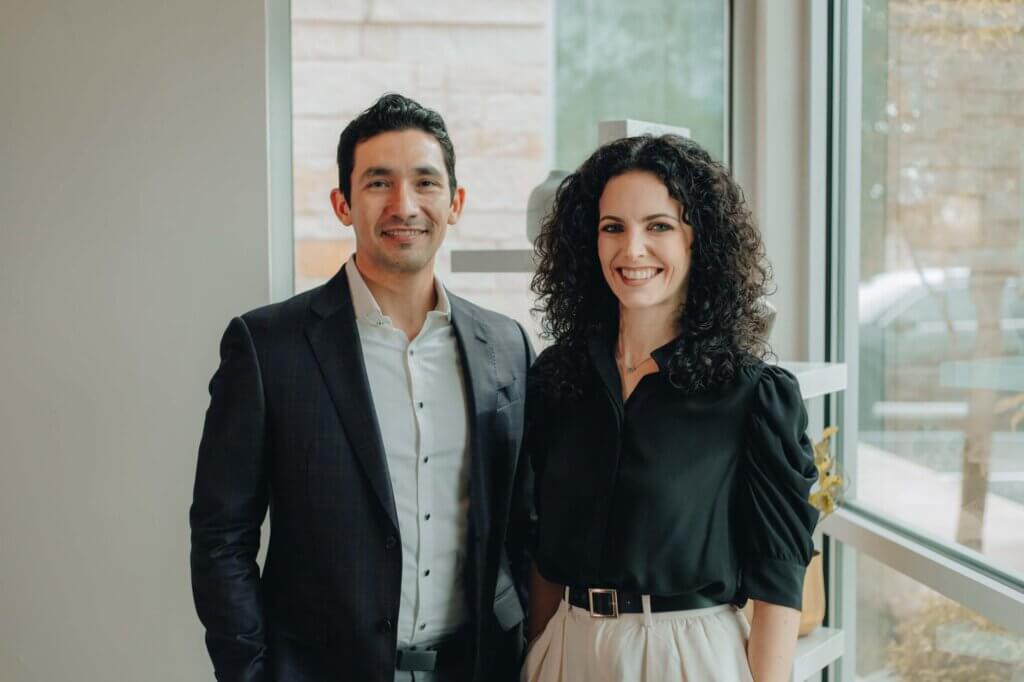At a time when nearly half of the American population grapples with at least one chronic illness, the significance of preventive medicine cannot be overstated. What is preventive medicine, you ask? It’s not just a buzzword; it’s a lifeline for our health and well-being.
In this blog post, your expert team at Salveo Direct Care will delve into the depths of preventive medicine, uncovering its definition, importance, and the crucial role it plays in our lives. If you are wondering how preventive medicine can help you or your loved ones, keep reading. Let’s get started.
What Is Preventive Medicine?
Preventive medicine is not merely a medical specialty; it is a philosophy, a way of life, and a paradigm shift in how we approach healthcare. At its core, preventive medicine is the proactive pursuit of health and well-being, rather than the reactive management of illness.
To better understand its meaning, let’s delve deeper into this multifaceted concept.
Proactive Health Maintenance
At its essence, preventive medicine is about being proactive. It’s the idea that we can take steps today to prevent health problems tomorrow. Instead of waiting for symptoms to arise and then seeking treatment, preventative medicine encourages us to identify risk factors, make lifestyle adjustments, and undergo routine screenings to detect issues before they become serious.
Personalized Care
Preventive medicine recognizes that each individual is unique. It tailors healthcare to a person’s specific needs, taking into account their:
- Age
- Gender
- Genetics
- Lifestyle
- Existing health conditions
This personalized approach ensures that preventive measures are not only effective but also practical and sustainable for the individual.
Comprehensive Health Promotion
Preventive medicine extends beyond the absence of disease. It encompasses a holistic approach to health promotion, including physical, mental, and social well-being.
It emphasizes the importance of factors like nutrition, exercise, mental health, and social connections in maintaining overall health.
Cost-Effective Healthcare
Preventive medicine is not just about promoting health; it’s also an economically sound approach. By investing in prevention, individuals and healthcare systems can save significant costs in the long run.
Preventing diseases is often more cost-effective than treating them. This is because it reduces the need for expensive medical procedures and long-term care.
Empowerment and Education
Preventive medicine empowers individuals to take control of their health. It provides education and awareness about the risks and benefits of various healthcare choices. Armed with knowledge, individuals can make informed decisions and actively participate in their own well-being.
Population Health Impact
The impact of preventive medicine extends beyond individual health. It influences the health of entire populations, leading to healthier communities and improved public health outcomes.
It also plays a crucial role in reducing healthcare disparities and promoting equity in healthcare access.
The Three Tiers of Prevention
In the realm of public health and medicine, a fundamental framework guides our approach to preventing and managing health-related issues. This is the idea of three tiers of prevention.
This concept divides preventive measures into three distinct levels, each with a unique role in safeguarding health and well-being. In this section, we will explore these tiers in detail, shedding light on how they shape healthcare strategies and contribute to a healthier society.
Primary Prevention
Primary prevention is all about staying healthy and avoiding the initial development of health problems. It focuses on reducing risk factors that could lead to diseases or injuries. Think of it as the first line of defense for your well-being.
Simple steps like vaccinations, staying active, eating well, and avoiding harmful habits can make a big difference in your health. In this section, we’ll explore primary prevention and its role in keeping you at your best.
Secondary Prevention
Secondary prevention steps in when a health issue has started but might not be causing symptoms yet. Its aim is to catch problems early, so they can be treated more effectively. You can think of it as getting ahead of potential health concerns.
Regular check-ups, screenings, and monitoring can help identify issues at an early stage, when they are easier to manage. In this section, we’ll delve into secondary prevention and how it plays a vital role in maintaining your health.
Tertiary Prevention
Tertiary prevention focuses on managing and minimizing the impact of existing health conditions. It’s all about preventing complications and improving your quality of life when you’re already dealing with a health challenge.
It’s about giving you the support and tools to live well despite health issues. Treatments, rehabilitation, and support groups are part of tertiary prevention.
Preventive Medicine in Practice
Preventive medicine is a dynamic and essential aspect of modern healthcare. In practice, it involves a wide range of strategies and interventions that empower individuals and communities to take control of their health.
Here’s a closer look at how preventive medicine is applied in various aspects of our lives.
Vaccinations and Immunizations
One of the most successful examples of primary prevention is the use of vaccinations and immunizations. These measures protect individuals and communities from a range of infectious diseases.
From childhood vaccines to annual flu shots, immunizations are critical in preventing the spread of diseases and reducing their impact on public health. We can see a perfect example of this with the recent COVID-19 pandemic.
Lifestyle Modification
Promoting a healthy lifestyle is at the heart of preventive medicine. Encouraging individuals to make positive changes in their daily habits can have a profound impact on their health. This includes:
- Adopting a balanced diet
- Engaging in regular physical activity
- Maintaining a healthy body weight
- Avoiding smoking and excessive alcohol consumption
Health education programs play a significant role in helping people make informed choices about their lifestyles.
Screening Programs
Secondary prevention comes into play with screening programs that aim to detect diseases in their early stages. Mammograms, colonoscopies, Pap smears, and regular health check-ups are examples of screenings that can identify conditions like cancer, heart disease, and diabetes before symptoms become severe. Early detection often leads to more effective treatment and improved outcomes.
Health Promotion and Education
Public health campaigns and educational initiatives are instrumental in raising awareness about preventive measures. These efforts provide information about the benefits of preventive medicine and empower individuals to take charge of their health.
Topics like nutrition, exercise, mental health, and safe sex practices are often addressed in these campaigns.
Telehealth and Remote Monitoring
Advances in technology have expanded the reach of preventive medicine. Telehealth services and remote monitoring allow healthcare providers to offer preventive care and health management even when patients are at a distance.
This has become especially valuable during health crises and for individuals with limited access to healthcare facilities.
The Importance of Preventive Medicine
Preventive medicine is a crucial element in the world of healthcare, quietly working to keep us safe and healthy. Let’s take a look at why it is so essential.
Saves Money, Saves Lives
Imagine spending a little today to avoid big expenses later. That’s what preventive medicine does. By catching health issues early or stopping them from happening, it saves us from the huge costs of treating serious diseases down the road. Plus, it can even save lives by preventing deadly diseases.
Keeps Us Feeling Good
Nobody wants to feel sick, right? Preventive medicine helps us stay well. It encourages us to make smart choices like eating healthy, staying active, and not smoking. These simple steps can make a big difference in how we feel every day.
Stops Diseases Before They Start
Think of preventive medicine as a shield against diseases. It stops them before they even have a chance to get started. Vaccinations, for example, keep us safe from harmful germs. It’s like wearing armor to protect us from health threats.
Gives Us Power
With preventive medicine, we’re not just passive passengers in our health journey; we’re active drivers. It gives us the power to make choices that keep us well. Knowledge is power, and preventive medicine equips us with the knowledge to make smart decisions.
Creates Healthier Communities
When everyone in a community practices preventive medicine, it’s like building a wall of defense. Healthier individuals mean healthier communities. Preventive medicine helps reduce health inequalities and ensures that everyone has a chance to thrive.
For a Brighter Future
Embracing preventive medicine means investing in a brighter future for ourselves and the generations that follow. It’s about breaking the cycle of illness, reducing future burdens, and empowering the next generation with the knowledge and tools to lead healthier lives.
Preventive medicine preserves the quality of life as we age, promoting equity in healthcare access, and leaves a legacy of care and compassion for our loved ones.
Everything You Need to Know About Preventive Medicine
In the journey toward better health, preventive medicine shines as a guiding light. It saves money, keeps us feeling good, and empowers us to make smart choices. But it’s not just about us; it’s about the generations to come.
If you’re in San Antonio, Texas, Salveo Direct Care is here to assist you on your preventive medicine journey. Contact them today to learn more about their services and take the first step towards a healthier tomorrow. Because, ultimately, what is preventive medicine if not the path to a brighter, healthier future for us all?


